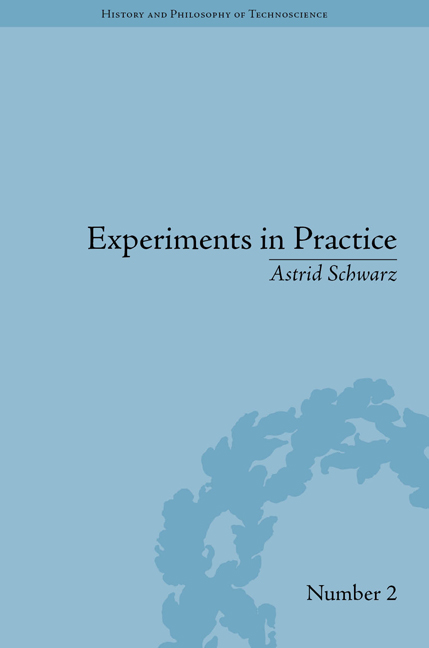Book contents
- Frontmatter
- CONTENTS
- List of Figures
- Introduction: Towards an Experimental Mode in Science, Society and Philosophy
- Part I Questioning the Scientific Method
- 1 (De)Liberating the Experiment: A Different History of the Philosophy of Science
- 2 The Philosophy of Inductive Sciences
- 3 Whewell's Innovation through Renewal
- Part II Different Modes of Experimentation
- Part III Tirelessly Tinkering with Unruly Conditions
- Part IV Practising Experiments in a World of Environmental Concerns
- Conclusion: Experiments in Practice – the Work of Experiments
- Notes
- Works Cited
- Index
3 - Whewell's Innovation through Renewal
from Part I - Questioning the Scientific Method
- Frontmatter
- CONTENTS
- List of Figures
- Introduction: Towards an Experimental Mode in Science, Society and Philosophy
- Part I Questioning the Scientific Method
- 1 (De)Liberating the Experiment: A Different History of the Philosophy of Science
- 2 The Philosophy of Inductive Sciences
- 3 Whewell's Innovation through Renewal
- Part II Different Modes of Experimentation
- Part III Tirelessly Tinkering with Unruly Conditions
- Part IV Practising Experiments in a World of Environmental Concerns
- Conclusion: Experiments in Practice – the Work of Experiments
- Notes
- Works Cited
- Index
Summary
Where it addresses, where it invokes ‘truth’, thought relativizes this criterion in the moment in which it adverts to it. There is no escape from this dialectical circularity.
George SteinerIn light of the ‘bankruptcy’ of the logic of induction and, more generally, the contentious character of the Baconian programme in the nineteenth century, it is all the more remarkable that William Whewell and his contemporaries John Herschel and Richard Jones of the ‘Philosophical Breakfast Club’ of Trinity College, Cambridge, were convinced that a renewed kind of Baconianism would prove to be an adequate method to describe scientific knowledge. The Novum Organon was one of their favourite readings even during their undergraduate days. An inductive method, they thought, would be a powerful tool not only to describe and assess the logic of already existing and secured knowledge – that is, to justify the operations, relations and conclusions of received and accepted science – but above all to help foster discovery and generate new knowledge. One of the most important Baconian precepts upon which Whewell drew was the idea that any valid philosophy of science must be developed from actual scientific practice. While Bacon himself could not yet draw on much of a history of modern science, this became an important constraint for Whewell.
- Type
- Chapter
- Information
- Experiments in Practice , pp. 39 - 66Publisher: Pickering & ChattoFirst published in: 2014

